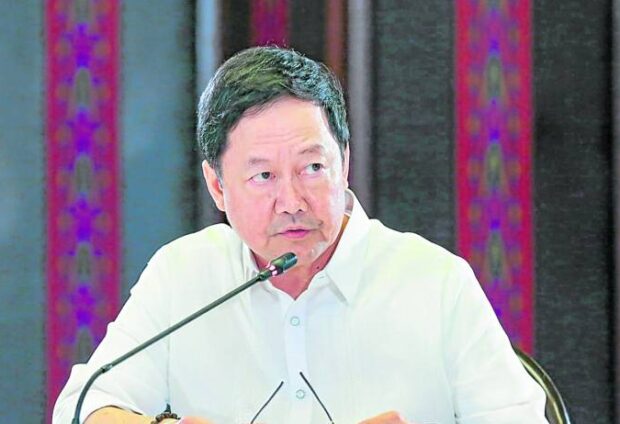
Menardo Guevarra —MALACAÑANG PHOTO
A group of Mindanao-based lawyers who lost some members and colleagues to extrajudicial killings have expressed their full support for and cooperation with the International Criminal Court’s (ICC) investigation into former President Rodrigo Duterte’s drug war “in the pursuit of justice for the countless lives lost and their grief-stricken families.”
“Having experienced the grave loss of loved ones in what were referred to as ‘nanlaban’ police operations or ‘vigilante’ death squad killings—which have also claimed the lives of members of the legal profession—Mindanao shares a deep desire for justice and accountability,” the Union of Peoples’ Lawyers in Mindanao (UPLM) said in a statement signed by its chair, Antonio Azarcon.
Seeking accountability for thousands of lives lost would be an essential step toward ending the climate of impunity in the country, the group added.
The ICC ruling, according to UPLM, should serve as a strong reminder that while states “may attempt to use procedural remedies to delay justice, yet the day of reckoning and accountability will inevitably come.”
133 lawyers killed
“We must not overlook the significance of this ruling and recognize that if governments like the Philippines only sincerely adhered to the implementation of domestic laws and advance the promotion and protection of human rights, the intervention of international bodies like the ICC may not be necessary at all,” it said.
The UPLM called on the Marcos administration to show “unwavering commitment” to human rights by honoring its international legal obligations and cooperating with the investigation.
The National Union of Peoples’ Lawyers, which counts Union of Peoples’ Lawyers in Mindanao as an affiliate, said that based on its records, a total of 133 lawyers have been killed in the country since democracy was restored in 1986. Of the 133 deaths, 59 took place during Duterte’s presidency.
End of engagement
In a close vote of 3-2, the ICC’s Appeals Chamber voted on July 18 to reject the Philippine government’s appeal to stop its prosecutor, Karim Khan, from proceeding with his investigation into alleged crimes of humanity committed under Duterte’s drug war.
On Thursday, Solicitor General Menardo Guevarra said that President Marcos had approved the government’s disengagement with the international court.
“I have discussed this matter personally with [him] and we have agreed that our appeal to the ICC Appeals Chamber is the end of our engagement with the ICC,” Guevarra told reporters.
“We just really waited for the decision (which we nearly won, 3-2),” he said, referring to the voting.
Rufus proposal
Two lawmakers, meanwhile, offered some advice to the government. According to Cagayan de Oro Rep. Rufus Rodriguez, it could allow the ICC probe to go on and question its jurisdiction later.
“When the case is brought to the ICC, we raise the issue of jurisdiction and the Philippines will surely secure its dismissal for lack of jurisdiction,” said the former law dean.
He added he agreed with the dissenting opinion of two ICC judges who had argued that when the court’s previous ICC prosecutor’s request for authority to conduct an investigation was submitted on May 24, 2021, the Philippines was no longer a party to the Rome Statute.
The country withdrew from the statute—the 2002 treaty that created the ICC—effective on March 17, 2018.
In the meantime, Rodriguez urged government officials to remain calm and study the decision well, saying, “There is no need for our government officials to say many extraneous comments on the decision.”
Risa: Marcos must choose
Sen. Risa Hontiveros, on the other hand, reiterated her call for the government to reconsider its stand not to cooperate with the ICC as she asked Mr. Marcos not to waste his recent efforts to enhance cooperation with more countries.
“The President now has to choose: Does he want a renewal of ties with other countries and the rest of the world? He started off well with a pivot from Beijing to other and more capitals in the world,” she said. “So I continue to appeal and expect the administration to cooperate—the President himself, agencies of the executive, to cooperate with this investigation so that true justice can be obtained.”
According to her, the ICC has a large membership and member nations have shown strong cooperation in the processes of citizens seeking justice on a global stage. “Does the President want to undermine these gains by taking a hardline stance vis-a-vis the ICC?” Hontiveros asked.
She pointed out that disengaging from the ICC was not the stance of a country seeking more and wider alliances in the world.
—WITH A REPORT FROM TINA G. SANTOS
RELATED STORY:
No trial, arrest in sight yet despite ICC ruling